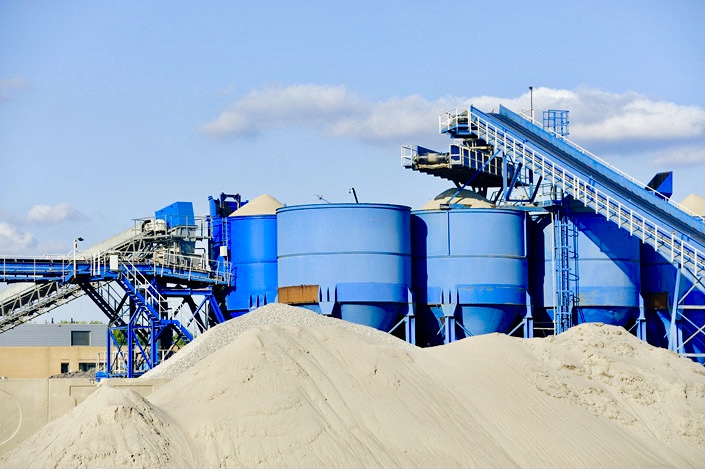The competition regulator in Africa’s copper producer Zambia has fined cement ‘oligopolistic’ producers Lafarge and Mpande Limestone 10% of annual turnover for two financial periods namely 2019 and 2020 for purported ‘unbridled business’ behaviours amounting to uncompetitive practices through purported price fixing. In a press release from the Competition and Consumer Protection Commission (CCPC), Lafarge Zambia Plc and Mpande Limestone Limited were fined 10% of their 2019 and 2020 turnovers for price fixing and division of markets while Dangote Cement was granted full leniency for having co-operated with the commission during investigations.
The CCPC Board has ordered all three cement producers to revert to pre-cartel prices ranging between $4.50 – $5.0 a 50kilogram bag for a period of 1-year from the date of receipt of the Board decision pursuant to Section (59) (3)(b) of the Act. Additionally, the CCPC decided that the cement producers submit monthly average ex-works prices and any price adjustments be indexed to the exchange rate and be submitted to the CCPC for review pursuant to Section 58 (1) of the Act; The Board has also ordered the three Cement Companies to develop and implement compliance programmes in their respective firms within 90-days of receiving the Board Directive.
DANGOTE SPARED FOR CO-OPERATING WITH COMPETITION REGULATOR
The press release revealed an exchange of commercially sensitive information relating to all three cement producers amounted to agreements, anti competitive in nature contrary to Section 9(1) of the Act. CCPC has for one year been investigating the suspected price fixing. While Dangote was spared by the CCPC for co-operating, the actions off the cartel nonetheless dictated prices for the entire market, for which smaller cement producers have not been flogged for. Perhaps when the prices revert to pre-cartel levels, the market will be expected to adjust lower or face the whip of the regulator.
For Lusaka Securities Exchange (LuSE) listed Lafarge Plc fine will translate to K173.74million (circa.$7.7million). This is based on FY19 audited financial statements and unaudited 1H20 financials.
In response, Lafarge, in its press release said it was surprised to learn of the fine. The cement producer said from inception it has cooperated consistently and has denied allegations of restrictive business practices.
Read also: Input Price Inflation to weigh Zambia’s Cement Manufacturing Pulse – Lafarge
The cement producer had written to various stakeholders earlier in the quarter justifying prices on the back of a rise in input prices such as gypsum which it has had to import due to the care and maintenance state of Chambishi Metals in addition to exchange rate depreciation.
COULD A CURRENCY ROUT ENVIRONMENT FUEL UPWARD PRICING ADJUSTMENTS?
Amidst spiralling inflation fuelled by a currency rout, the copper producer grapples with price increases of various commodities across the board. There have been various calls from stakeholders for the monetary policy side to arrest the currency slide which has been dubbed the biggest driver of spikes in input costs. Zambia’s private sector pulse has been in contraction for 24 straight months weighed by a confluence of factors to include rising energy costs, covid effects through supply chain disruptions and weakening currency effects. Recently, in March, the competition regulators fined 7 fish fingerling producers and distributors 9% and 10% of annual turnover for price fixing.
Zambia’s cost of living as measured by the Jesuit Centre for Theological Reflection (JCTR) has widened to $378 (circa K8,500) for a family of 5 weighed by general price increase in the price of food while other non food relate commodities have seen similar price surges over the period. With an inflationary environment, the CCPC will be expected to court more producers for sanitisation in price hike justifications in the Southern African nations whose prices are rising at the fastest pace in history.
The Kwacha Arbitrageur.

